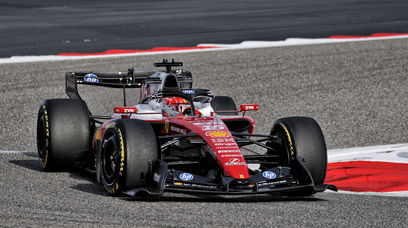Red Bull Chief Technology Officer Adrian Newey says the new set of technical regulations for 2026 appear likely to make F1 cars a lot slower than they currently are. Newey said the current generation of F1 cars may be the fastest that are seen for some time, as designers and engineers adapt to a slew of proposed regulation changes set to come in for 2026. "It's all controlled by regulation," Newey told the Talking Bull podcast. "If we didn't have regulations, F1 cars would be ridiculous, like rocket ships, at which point safety would be a big, big problem, and tyre failures, if we were allowed to develop as much downforce as we could. "The tyre manufacturers have it hard enough as it is without it, they just wouldn't be able to take the load. "So it is possible that this current generation of F1 cars will be the fastest for some time, because the 2026 rules, as proposed at the moment, the cars would be quite a lot slower."
What changes are coming in for 2026?
At an F1 Commission meeting last year, the FIA revealed six initial goals for the 2026 chassis regulations. These are set to be introduced alongside a new generation of power units with a greater emphasis on electric power and sustainable fuels. Significantly reduced drag to improve sustainability and efficiency and complement the power unit characteristics. Maintain and improve on recent lessons learned about close racing and cars being able to follow each other. Reduce car dimensions. Reduce or contain car mass. Sustainability: continue path towards the standardisation or simplification of strategically-selected components for cost-cutting purposes. Expand the usage of sustainable materials or technologies and focus on recyclability. Continued innovation in terms of car safety, moving towards active and connected safety systems.
Most read







